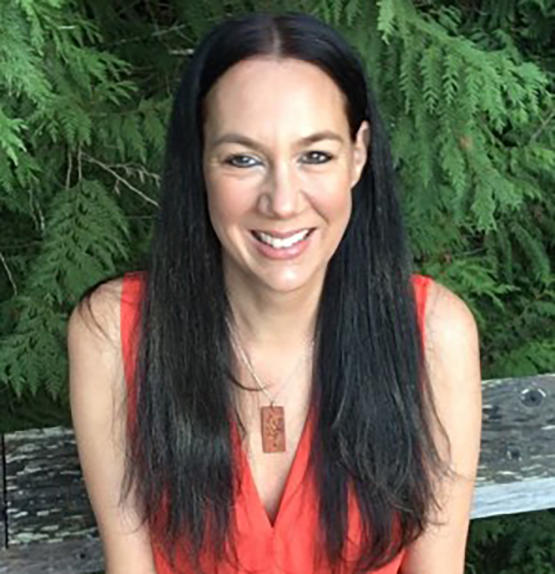Indigenous women as leaders of change:
Creating safe and inclusive space in sport
Recent headlines have thrown a spotlight on the violent culture in sport at both the varsity and professional levels. While this was news to some, issues of racism, sexism, homophobia, transphobia, and other forms of exclusion have existed if not persisted in sport for ages.
Join us Sept. 21 for a conversation with two Olympic and World Champion athletes and an academic scholar who studies sport, identities, and cultures in Olympic history. As they share their stories from the world of high-performance sport, these accomplished women will impart lessons learned and how to move forward as allies and champions of equity, inclusion, and gender justice in sport and beyond. Indigenous women have always been leaders in their communities; from grassroots to the Olympics, these three women have a lot to teach and share with us about their experiences with sport.

A Quality Money project, brought to you by your Students’ Union.
Background: In 2018, the Sexual and Gender-Based Violence Support and Response Office received funding from the SU Quality Money grant to embark on a three-year project to prevent sexual violence. The project provides a unique opportunity to bring forward ideas leading to the enhancement of the overall student experience. The goals are to examine issues intersecting sexual violence prevention, masculinities, and education in varsity athletics at the University of Calgary with the intention of mobilizing proactive, thoughtful, and well-informed strategies to create and maintain a safe and healthy university climate for all students. As such, the Sexual and Gender-Based Violence Support and Response Office and the UCalgary Athletics department have worked in collaboration to start addressing and changing the climate of sexual violence, harassment, and hazing within varsity athletics.
Speaker panel

Dr. Christine O’Bonsawin
University of Victoria scholar
Christine O’Bonsawin is an Abenaki (Odanak) scholar who is guest on the lands of the Songhees, Esquimalt, and WSÁNEĆ peoples and is grateful to have the opportunity to live, work, and raise her children on these territories. Her scholarship in Indigenous studies and sport history takes up questions regarding the appropriation and subjugation of Indigenous peoples, identities, and cultures in Olympic history and the future programming of the Games.
Christine’s recent scholarship has mainly focused on the legal and political rights of Indigenous peoples in settler colonial Canada, particularly in hosting the Olympic Games on treaty lands as well as those territories that remain treaty-less (unceded). Christine remains committed to researching, writing, and teaching in areas related to sport, Olympic, and Indigenous histories to support the advancement of Indigenous rights in settler colonial Canada, and beyond.

Waneek Horn-Miller
Olympic water polo athlete and Indigenous speaker
Similar to the arduous process of making wampum beads, the journey of that Waneek Horn Miller doesn’t begin and end with being an Olympic water polo athlete. A Mohawk from the Kahnawake Mohawk Territory near Montreal, Waneek was behind the lines during the Oka crisis in 1990 when she was stabbed by a Canadian soldier’s bayonet. It was a near-death experience that marked a turning point in her life. Waneek has overcome discrimination and violence to emerge as one of North America’s most inspiring female Indigenous speakers with a compelling perspective and dynamic stories to share.
Her presentations and keynotes are aimed at bridging the gap and repairing relationships between Indigenous and non-Indigenous peoples. Waneek is an advocate for building Indigenous sport and has worked with the Assembly of First Nations to develop their sport, fitness and health strategy. Drawing on her experiences as the former co-captain of Canada's Olympic women's water polo team, Waneek shares her story and teaches how to build self-esteem through a balance of education and sport. Waneek travels extensively from border to border, speaking to Indigenous and non-Indigenous audiences on issues of reconciliation, sport and why it is important we must all strive for our dreams.

Brigette Lacquette
Olympic ice hockey athlete and NHL scout
Brigette Lacquette is the first First Nations hockey player to be named to Canada’s National Women’s Team. She recognizes that makes her a role model for young First Nations athletes, especially girls who play hockey, but that is a job she is happy to accept. Lacquette first joined the National Women’s U18 Team in August 2008. She went on to win silver and gold at the 2009 and 2010 IIHF U18 Women’s World Championships.
Lacquette first played with the National Women’s Team at the 2013 Four Nations Cup, helping Canada win the gold medal. She made her IIHF Women’s World Championship debut in 2015, winning the first of two back-to-back silver medals with Canada. Her Olympic debut came at PyeongChang 2018, helping Canada win the silver medal.
Lacquette is also the first Indigenous woman to scout for an NHL team, the Chicago Blackhawks.

